Numerous career options await our graduates, who are superbly trained experts in research, policy, community care and clinical practice. According to a report from the financial company SoFi, Trojan pharmacy graduates rank No. 4 in the nation for highest average salary in the field.
Here are just a few of the many career options available to you with a PharmD degree from the USC Alfred E. Mann School of Pharmacy and Pharmaceutical Sciences.
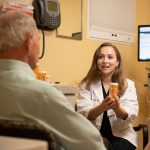
Clinical Pharmacy Practice
In many clinics that serve diverse populations, pharmacists are integral members of the healthcare team whose contributions optimize cost-effective patient care. Working in partnership with physicians, pharmacists increasingly assume responsibility for medication therapy management—especially for patients with chronic diseases such as diabetes, asthma and high blood pressure—and help patients achieve optimal outcomes through appropriate medication, diet and lifestyle choices.
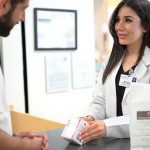
Community Pharmacy
Community pharmacists serve on the front lines of healthcare. In addition to dispensing medications and monitoring patients for adverse effects and drug interactions, pharmacists provide important counseling services, such as the proper selection of over-the-counter medications and referrals to other healthcare providers. Today’s pharmacists are also versed in alternative medicines. Many USC graduates own independent pharmacies or have advanced to management positions within retail chain pharmacy organizations.
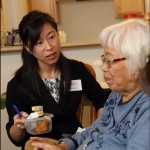
Geriatric Pharmacy
Nearly 40% of the U.S. population are mature adults who consume a large proportion of healthcare resources. Our PharmD graduates are among the nation’s leaders in geriatric pharmacy. Careers in this field serve the needs of a fast-growing segment.
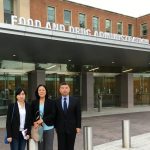
Governmental Agencies
Local, state and federal government agencies—such as the National Institutes of Health, Food and Drug Administration, Veterans Affairs and the Armed Forces—require expertise from skilled pharmacists. Many USC graduates work in hospitals and clinics within these agencies.
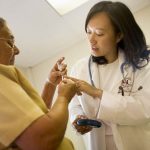
Home Healthcare
Many patients formerly treated in hospital settings now receive professional care in their homes. PharmD graduates who work in this field provide intravenous antibiotics, pain-management medications, nutritional supplements, chemotherapy and more. Pharmacists also monitor patients’ progress and adjust therapy as needed, as part of a home healthcare team.

Hospital Pharmacy
Pharmacists in hospitals monitor and adjust patient medications and work closely with physicians, nurses and other health professionals to determine the most appropriate drug therapies. Clinical pharmacists may specialize in a variety of areas of pharmacy practice, including pediatrics, critical care, cardiology, surgery, psycho-pharmacy, neurology, infectious diseases, drug information and transitions of care.

Managed Care
Managed care is planned, comprehensive and integrated provision of healthcare in a cost-effective manner that emphasizes preventive care. Optimization of drug therapy, development of drug formularies, evaluation of therapeutic protocols, patient consultation, and reduction in unnecessary doctor visits and hospitalization are among the responsibilities of pharmacists who practice in the managed-care environment.
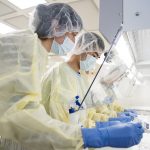
Pharmaceutical Industry
Modern drug therapy is highly sophisticated, and the pharmaceutical industry requires technically proficient sales and marketing personnel. Additionally, pharmaceutical research and development provides numerous opportunities for pharmaceutical scientists, including drug isolation and synthesis, formulation, packaging and quality control. Because of their expertise in drug therapy and knowledge of the healthcare delivery system, our graduates are actively recruited by major pharmaceutical manufacturers.
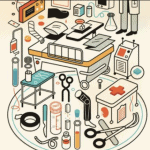
Pharmacoeconomics
Graduates of our PharmD/Healthcare Decision Analysis or Pharmaceutical Economics and Policy program often choose academic positions at university schools of pharmacy, opportunities in public administration, public health, medicine, government agencies, insurance plans, managed-care organizations, professional healthcare associations, hospital administration departments, healthcare consulting, pharmaceutical companies and international organizations.

Pharmacy Education
Our PharmD curriculum provides a strong foundation in clinical sciences; in fact, we were the first school to develop a clinical pharmacy curriculum and pharmacoeconomics program. Nearly half of the nation’s pharmacy schools have recruited USC graduates to join their faculties in order to teach clinical pharmacy and conduct research on optimization of drug therapies and healthcare costs.

Specialized Areas
Pharmacists with expertise in specialized areas such as consulting, legal practice, drug information, poison control and pharmacy affairs are more in demand as the profession evolves. At USC, you have the opportunity to pursue a range of dual and joint degrees in combination with the PharmD to prepare yourself for specialization.

